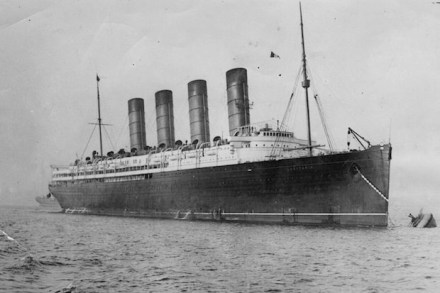Optician

‘Wow! I can’t believe we’re meeting the actual tooth fairy.’
‘Do you have one that’s much more feminine?

Woad rage

‘We’re beach body ready.’

‘It’s every young girl’s dream — to divorce a millionaire.’


‘I’m not sure — it’s either your mother or a cold-caller....’

The long arm of the FBI Sir: The White House may be less willing than it was to play the role of the world’s policeman in international affairs, but the FBI seems eager to be the world’s cop. No doubt, as Martin Vander Weyer has noted (Any other business, 6 May), the US Attorney General
Forty years on The forthcoming EU referendum has rekindled memories of the in-out Common Market referendum of 1975. But it seems a strange looking-glass world now. — Mrs Thatcher was a keen ‘yes’ campaigner, sporting a jumper with the flags of EC member states. Neil Kinnock campaigned for a British exit. The SNP and Plaid
David Cameron is now facing the biggest challenge of his leadership: how to renegotiate Britain’s membership of the EU without destroying his party. His dilemma mirrors the situation of Harold Wilson 40 years ago this month. So far, the old Labour man looks the better strategist. Wilson, who had a majority of three, avoided mass


Home David Cameron, the Prime Minister, said of the EU referendum: ‘If you want to be part of the government, you have to take the view that we are engaged in an exercise of renegotiation to have a referendum and that will lead to a successful outcome.’ This caused a certain amount of uproar, with

From ‘Cabinet Salaries and Cabinet Pensions’, The Spectator, 12 June 1915: THE National Government have very wisely taken a step which we strongly urged upon the late Government on February 28th, 1914, and again on July 4th of the same year. They are going to pool their salaries just as we then recommended, and make

From ‘The Essential Need’, The Spectator, 12 June 1915: Just as wages must be ‘stabilised’ for the men at existing rates, so all additional profits due to war contracts must be credited, not to the individual employer, but to the state. The principle of no war rise in wages must be strictly applied to profits. Upon
From ‘The Essential Need’, The Spectator, 12 June 1915: UNLESS we beat the Germans they will bleed us to death, and grind their heels upon our faces. Those who in their hearts nourish a secret feeling that if the worst comes to the worst we can always break off the war, and acknowledge ourselves conquered,

From ‘The United States and Germany’, The Spectator, 12 June 1915: THE resignation of Mr. Bryan, the powerful American Secretary of State, which took the United States by surprise, must of course affect considerably the methods by which the American Cabinet will conduct their negotiations with Germany. Mr. Bryan, as he has in effect told

From ‘News of the Week’, The Spectator, 12 June 1915: A MAGNIFICENT feat of airmanship was performed at three o’clock on Monday morning by Flight-Sub-Lieutenant R. A. J. Warneford, R.N., who single-handed attacked a Zeppelin between Ghent and Brussels and destroyed it. He dropped six bombs on the Zeppelin, and had come so close to
